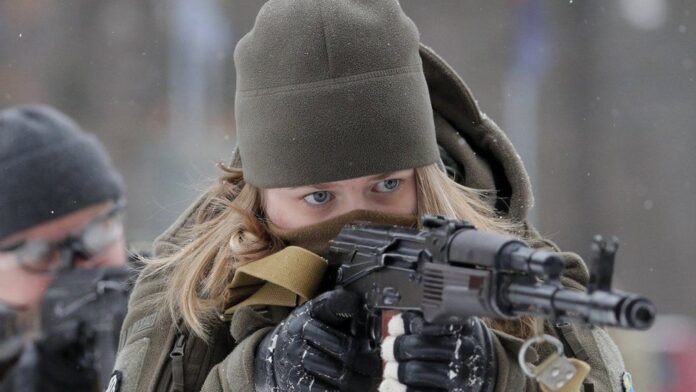Swiss lawmakers are rethinking what it means to be neutral amid Russia’s ongoing war in Ukraine — although change might come too late for Kyiv.
In Bern, sending weapons doesn’t just depend on a political decision from the top, but also legal issues and a secular commitment to neutrality.
A small country surrounded by great powers, neutrality is baked into Switzerland’s history: The mountainous country has been neutral for close to five centuries, while being recognized in international law as an unaligned state since 1815.
Under its current legal framework, Switzerland may not directly deliver weapons to warring countries, nor is it allowed to re-export; so the Swiss government would need to directly approve any supply of weapons to Ukraine.
And now, politicians from across the spectrum are considering just that.
Among those pushing for change is liberal politician Thierry Burkart, whose proposed motion to free up weapons exports will be debated on Friday: “We are neutral and will remain so, but in the current situation we are in fact preventing our Western partners from supporting Ukraine,” he told POLITICO.
Ukrainian officials have also been urging the Swiss government to review its position. “I ask Switzerland to supply defense weapons that protect people’s lives,” Kyiv Mayor Vitaly Klitschko said last month. “When it comes to human rights, to life and death, to war and peace, you cannot be neutral.”
Bern has blocked delivery of weapons and ammunition to Ukraine from several European countries, leading to challenging bottlenecks, experts say.
To address that, Burkart, who leads the liberal Free Democratic Party, put forward a motion at the national level in June 2022. It would allow arms exports to Ukraine via “countries that share Swiss values” without having to ask for the government’s express permission.
On Friday, the Council of State’s security committee will discuss Burkart’s initiative — which may garner support across parties.
Conservative Werner Salzmann, president of the committee, said he’d agree to the initiative if certain conditions are fulfilled.
“Neutrality law dictates that our material cannot be delivered directly to warring countries,” he emphasized, repeating a mantra from the country’s legal framework.
But five years is an eternity during war, and European countries are eager to get weapons to Ukraine now.
Germany was one of the first to have its request rejected when Bern refused to allow Swiss-made ammunition in Germany’s stocks to be sent to Ukraine as Berlin readied its first shipment of Gepard mobile anti-aircraft systems.
And Germany can’t just buy from elsewhere, said Niklas Masuhr, a researcher at the University of Zurich.
“We are talking about the anti-aircraft gun 35 mm Oerlikon, which is not produced anywhere else in Europe,” he said.
The Swiss blockade prompted German arms-maker Rheinmetall to open a new ammunition factory — but building up production from scratch is a lengthy process, with media reports indicating that a new plant could go operational by mid-2023 at the earliest.
A request by Spain, which wants to send two Oerlikon cannons to Ukraine, is pending, with a spokesperson for the Swiss State Secretariat for Economic Affairs saying this is unlikely to be granted. Last June, the secretariat rejected a similar request from Denmark regarding Swiss-made armored vehicles.
To justify this decision, the Swiss government argued that under Swiss law, weapons cannot be exported to countries involved in international armed conflicts.
In addition, neutral states are required by international law to treat all parties involved in a conflict equally. Since Switzerland has joined international sanctions against Russia — which include a ban on arms trading — it was bound to do the same for Ukraine.
Source : Politico

